Trump’s policies boost Left-leaning world leaders
Across the world, from Australia to Canada to the UK, left-leaning leaders and political parties were in the doldrums. Then came Trump 2.0.
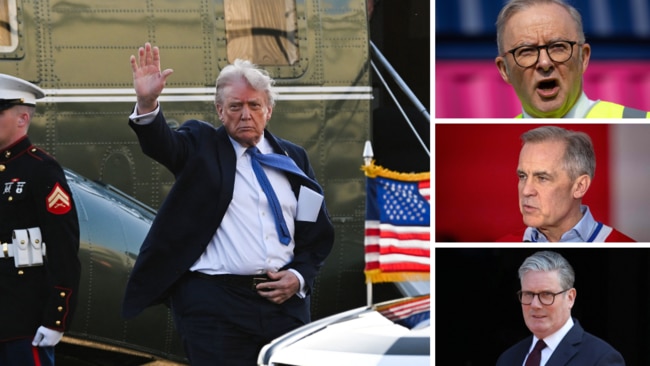
Across the world, from Australia to Canada to the UK, left-leaning leaders and political parties were in the doldrums. Then came Trump 2.0.
In his first three months in office, President Trump pivoted toward Russia, slapped close US allies with tariffs and relaunched a trade war against China. The moves up-ended US policy and left financial markets in chaos.
But the turmoil is helping Trump’s ideological opponents around the globe who are seeing their polling rebound as voters seek out stability.
In Canada, which is set to hold an election on Monday, the centre-left Liberals were behind in the polls by 20 points before Trump began questioning their country’s sovereignty. Liberal Prime Minister Mark Carney is now ahead, with a poll tracker published by CBC News showing his party leading the Conservatives 42.2 per cent to 38.5 per cent.
There is a similar situation in Australia, where elections will be held May 3. Prime Minister Anthony Albanese, of the centre-left Labor Party, was losing to his conservative opponent, Peter Dutton, 53 per cent to 47 per cent in January, according to the pollster Roy Morgan.
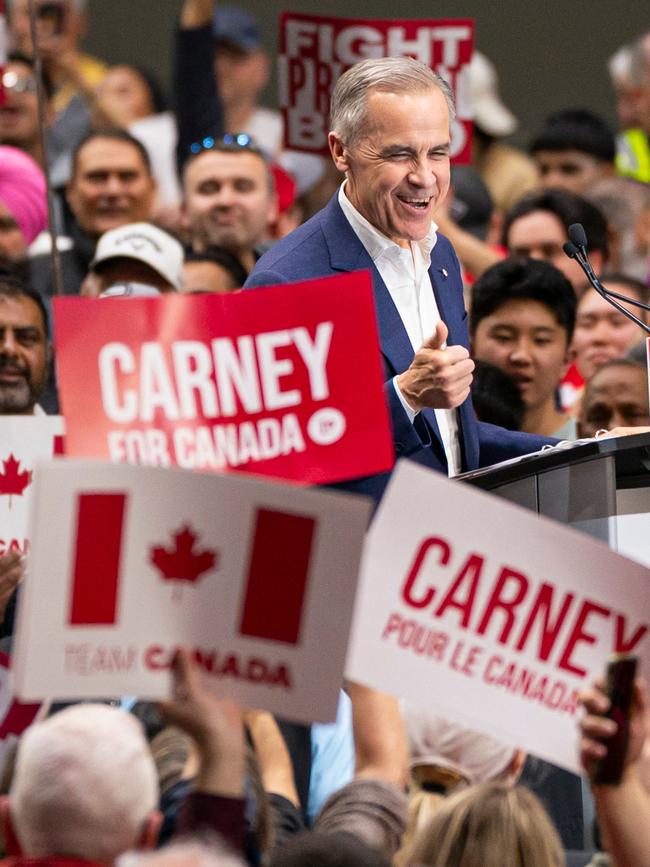
Now, Albanese is ahead 55.5 per cent to 44.5 per cent.
There is no imminent national election in the UK, but the popularity of Labour Party Prime Minister Keir Starmer has improved, albeit off a low base. Starmer had a well-regarded meeting with Trump in the Oval Office, and he has taken on a more visible role in galvanising Europe to help Ukraine in its war against Russia. His favourability rating hit 29 per cent in March, up from 21 per cent in February, according to Ipsos.
Trump has “crippled, if not destroyed, the global trade architecture that has existed for 75 years,” said Bruce Wolpe, a senior fellow at the US Studies Center at the University of Sydney. “People are afraid of the effects of that.”
Pollsters said Trump is unpopular in these countries. In Canada, 33 per cent of people had a very or somewhat positive view of the US in March, down from 52 per cent in June last year, according to a survey commissioned by the Association for Canadian Studies. In the UK, Ipsos found earlier this month that 30 per cent of Britons agreed there was a “special relationship” between the UK and the US, a 17-point drop from the previous year.
In Australia, a recent poll by the Lowy Institute think tank found 36 per cent of Australians had any level of trust in the US to act responsibly, a new low and down from 56 per cent in the prior year. Another poll, from RedBridge Group and Accent Research, found that 71 per cent of Australians in a selection of competitive electoral districts had a very or mostly unfavourable view of Trump.
“The overall takeout is that Australians have broadly rejected Mr Trump’s foreign policy agenda,” said Ryan Neelam, director of the public opinion and foreign policy program at Lowy, and a former Australian diplomat. “That should give a clue to politicians who are seeking election in these liberal democracies.”
That dynamic is playing out in campaigns in both Canada and Australia. In Canada, the Trump-style candidate from the Conservative Party, Pierre Poilievre, had been promising to shake up Canada if he wins. Now, many Canadians are looking for a pair of steady hands, which Carney, a former central banker, has said he can provide. Poilievre, an adopted son of schoolteachers, recently said he doesn’t really share anything in common with Trump.
In Australia, the conservative candidate, Dutton, a former defence minister and police officer, also supported policies with a Trumpian flair. In January, he appointed a minister for government efficiency — echoing the US’s Department of Government Efficiency led by Elon Musk — to his shadow cabinet. He also wanted to axe tens of thousands of government jobs and end working from home for public-service workers, similar to efforts by Trump and Musk to terminate remote work.

But his campaign has since shifted course. He walked back his idea to end working from home, and said that he would cull the government workforce through attrition and hiring freezes rather than lay-offs. At one point in the campaign, the government efficiency shadow minister, Senator Jacinta Nampijinpa Price, put Trump back in focus when she used the slogan “Make Australia Great Again.” She later disputed that the comment was an ode to Trump.
“It’s one thing to have a beer in the backyard at the barbecue and debate about ‘Is Australia too woke?’” said Bill Shorten, a former Labor Party leader who is now president at the University of Canberra. “But when you see your pension fund dropping … it doesn’t seem so funny anymore.”
When asked in a debate about whether he is similar to Trump, Dutton said that “this election is between the prime minister and I” and that there are negative ads, lies and mudslinging because “the government doesn’t have a good story to tell.”
For the conservatives, the focus on Trump can be frustrating. In Australia, some centre-right supporters thought they could win by criticising the government for not taming inflation and tackling high housing and energy costs.
“The campaign has been tossed around by Trump,” said Jason Falinski, a former lawmaker in Australia from Dutton’s party. “And it means that the things that we want to be talking about, people aren’t talking about.”
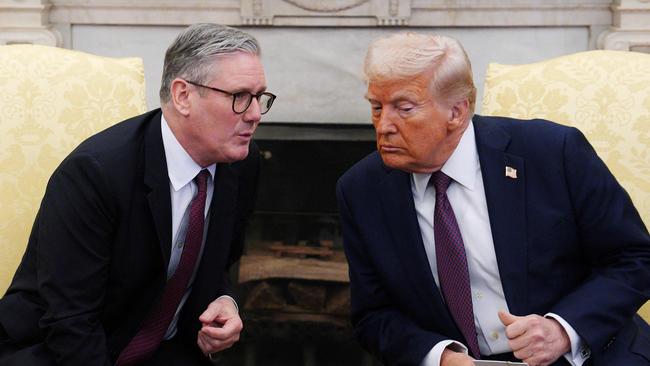
Even for the left, there are pitfalls to focusing too much on Trump. Albanese, the Australian prime minister, was criticised for not getting an exemption from Trump’s tariffs for Australian steel and aluminium — unlike in Trump’s first term, when a conservative Australian government got an exemption. Albanese has responded that other US allies also didn’t get exemptions this time.
Whoever wins elections in both Australia and Canada will face years of dealing with Trump because the US remains a close security ally of both countries. The US and Canada are members of the North Atlantic Treaty Organisation. And Australia is buying nuclear-powered submarines from the US under the Aukus pact, which includes the UK, as Washington tries to push back against Beijing in the Indo-Pacific region.
The Trump bump does have its limits. In the UK, Starmer’s favourability rating fell back down to 23 per cent this month, giving up most of its improvement following his performance on the world stage, according to Ipsos. Local elections are coming up, and the focus could be shifting to domestic issues such as the economy, Ipsos said.
Trump is still likely to be a net positive for Albanese, political analysts said. The prime minister had a chance to talk tough by declaring that Trump’s tariffs weren’t the act of a friend, but he simultaneously looked calm and measured by declining to retaliate.
“We’re still on the brink of a global recession,” said Jill Sheppard, a senior lecturer in politics at Australian National University. “In those sorts of conditions, incumbent governments tend to benefit.”
Wall Street Journal

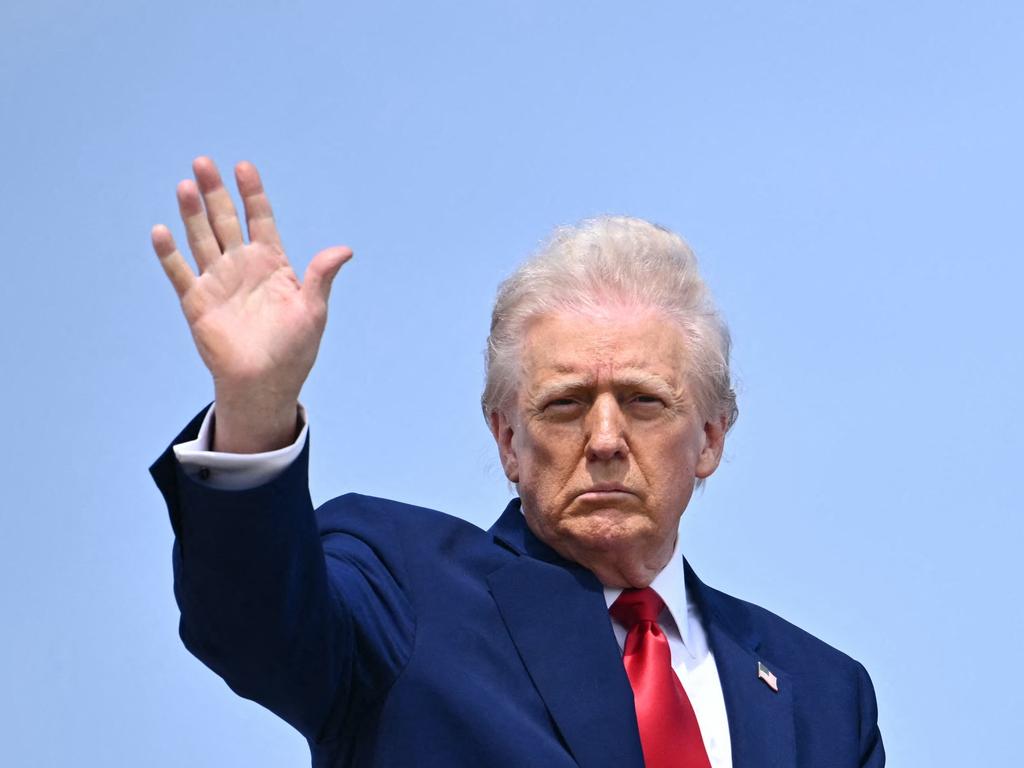
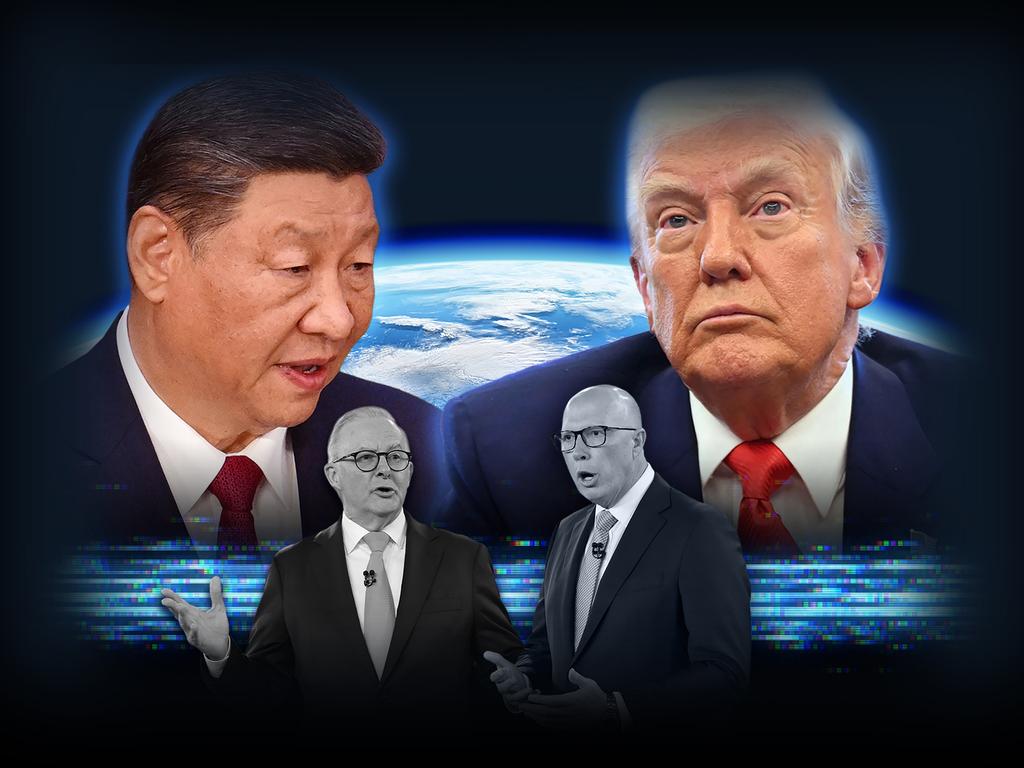


To join the conversation, please log in. Don't have an account? Register
Join the conversation, you are commenting as Logout